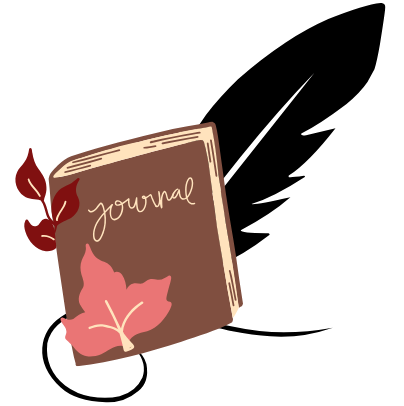As a writer, I’ve always been fascinated by the habits and routines of successful authors. My own pathway has been filled with experimentation, trying to find that perfect formula to unleash my creativity and boost my productivity.
It wasn’t until I began studying the methods of renowned writers that I started to understand the true power of a well-crafted writing routine.
Let’s explore the intriguing world of famous authors’ writing habits and see what valuable lessons we can glean from their approaches.
The Power of Consistency
One of the most striking commonalities among successful authors is their unwavering commitment to consistency. Stephen King, for instance, aims to write 2,000 words every single day, regardless of holidays or how he’s feeling.
This level of dedication showcases the immense power of habit in creative pursuits.
Consistency doesn’t always mean writing at the same time every day, though. Some authors, like Haruki Murakami, are early birds who start their writing sessions at the crack of dawn.
Others, like Franz Kafka, found their creative peak in the late hours of the night.
The key is finding a rhythm that works for you and sticking to it religiously.
For me, establishing a consistent writing routine was a game-changer. I found that setting aside a specific time each day for writing, even if it was just for an hour, dramatically improved my output and the quality of my work.
It’s not about waiting for inspiration to strike – this involves showing up consistently and letting the words flow.
Creating the Ideal Writing Environment
The physical space where writing happens can have a profound impact on productivity and creativity. Maya Angelou took this concept to the extreme by renting hotel rooms to write, stripping them of all artwork to minimize distractions.
On the other hand, Jane Austen preferred the bustling environment of her family’s drawing room, finding inspiration in the daily activities around her.
These contrasting approaches highlight an important point: there’s no one-size-fits-all solution when it comes to creating an ideal writing environment.
Some writers thrive in complete silence, while others need background noise or music to get their creative juices flowing.
I’ve experimented with various settings, from quiet libraries to busy cafes, and found that a mix of environments works best for me. Sometimes, the change of scenery itself can be a catalyst for creativity.
The key is to pay attention to where you feel most productive and inspired, and then recreate those conditions as much as possible.
Unconventional Methods for Overcoming Writer’s Block
Writer’s block is a common challenge that even the most accomplished authors face. Famous writers have developed some truly unique methods for combating it.
Victor Hugo reportedly wrote naked and had his valet hide his clothes to prevent him from leaving the house before his writing was done.
While this might be a bit extreme for most of us, it underscores the lengths some writers will go to maintain their focus and productivity.
Dan Brown, author of “The Da Vinci Code,” claims to hang upside down to combat writer’s block. While the scientific basis for this method is questionable, it speaks to the importance of finding personalized strategies for overcoming creative obstacles.
In my own battle with writer’s block, I’ve found that changing my physical state can often help. This might mean taking a quick walk, doing some stretches, or even just moving to a different room.
The key is to shake things up and give your mind a fresh perspective.
The Role of Physical Activity in the Creative Process
Many renowned authors incorporate physical activity into their writing routines, recognizing the powerful connection between body and mind. Haruki Murakami, for instance, is an avid runner who often finishes marathons.
Charles Dickens was known for taking long walks to stimulate his creativity, a habit that’s supported by modern research on the cognitive benefits of walking.
Incorporating movement into your writing routine doesn’t have to mean running marathons or taking hours-long walks. Even short bursts of physical activity, like a quick yoga session or a brisk walk around the block, can help clear your mind and boost creativity.
I’ve found that regular exercise improves my overall well-being and enhances my writing. On days when I start with a workout or a jog, I often find that my writing flows more easily and my ideas come more readily.
It’s as if the physical activity primes my brain for creative work.
Balancing Writing with Other Responsibilities
One of the most challenging aspects of establishing a writing routine is balancing it with other life responsibilities. Many famous authors maintained day jobs while writing their masterpieces.
T.S. Eliot worked at a bank, and William Faulkner was a postmaster. This balance between creative work and financial stability stays a challenge for many writers today.
The key to success comes from carving out dedicated time for writing, even if it means waking up earlier or staying up later. It involves making writing a non-negotiable part of your daily routine, regardless of other commitments.
In my own experience, I’ve found that treating my writing time with the same respect as I would any other important appointment helps me stay consistent. I block out specific hours in my calendar for writing, just as I would for a work meeting or a doctor’s appointment.
This helps me prioritize my writing and confirms that it doesn’t get pushed aside by other demands on my time.
Embracing Technology (or Not)
The advent of word processors and the internet has significantly changed writing routines. While some authors embrace these tools, others, like Jonathan Franzen, intentionally write on computers disconnected from the internet to avoid distractions.
Finding the right balance with technology is crucial. While digital tools can enhance productivity and streamline the writing process, they can also be a source of endless distraction.
Experiment with different approaches to find what works best for you.
I’ve found that using a distraction-blocking app on my computer during writing sessions helps me stay focused. However, I also keep a notebook handy for those times when I want to brainstorm or jot down ideas without the temptation of the internet at my fingertips.
Developing Your Own Writing Routine
Now that we’ve explored the diverse writing routines of famous authors, it’s time to develop your own. Here’s a step-by-step guide to creating a writing routine that works for you:
1. Identify Your Most Productive Hours
Pay attention to when you feel most alert and creative. Are you a morning person or a night owl?
Do you have a mid-afternoon burst of energy?
Schedule your writing sessions during these peak times whenever possible.
2. Choose a Dedicated Writing Space
Create a space that’s conducive to writing. This could be a home office, a corner of your bedroom, or even a favorite spot at a local cafe.
The important thing is that it’s a place where you can focus and feel comfortable.
3. Set Realistic Daily or Weekly Writing Goals
Start small and build up. Maybe you begin with a goal of writing 500 words a day or spending 30 minutes on your project.
As you build the habit, you can gradually increase your goals.
4. Experiment with Different Writing Tools
Try writing longhand, using a typewriter, or working on a computer. Each method has it’s own benefits, and you might find that different tools work better for different types of writing.
5. Incorporate Physical Activity into Your Routine
Whether it’s a morning jog, an afternoon yoga session, or evening walks, find ways to get your body moving. This can help clear your mind and boost your creativity.
6. Develop Strategies for Overcoming Writer’s Block
Create a toolkit of techniques to use when you’re feeling stuck. This might include freewriting exercises, changing your environment, or working on a different part of your project.
7. Find Ways to Minimize Distractions
Identify your biggest distractions and develop strategies to manage them. This might mean turning off your phone, using website blockers, or setting boundaries with family and friends during your writing time.
8. Be Consistent, and Flexible When Needed
Stick to your routine as much as possible, but don’t be too hard on yourself if life occasionally gets in the way. The goal is to create a sustainable practice, not to add unnecessary stress to your life.
Remember, the goal is to find a routine that enhances your creativity and productivity, not one that feels like a chore. Be patient with yourself as you experiment and refine your approach.
Common Pitfalls to Avoid
As you develop your writing routine, be aware of these common pitfalls:
Waiting for Inspiration to Strike
Inspiration is wonderful when it comes, but successful writers don’t rely on it. They show up and do the work, even on days when they don’t feel particularly inspired.
Perfectionism Paralysis
Don’t let the pursuit of perfection keep you from making progress. Remember, you can always revise and edit later.
The important thing is to get your ideas down on paper (or screen).
Neglecting Physical Health
Long hours of sitting and focusing intensely can take a toll on your body. Make sure to incorporate regular breaks, exercise, and proper ergonomics into your routine.
Isolation from Other Writers or Creative Individuals
While writing is often a solitary activity, connecting with other writers can provide valuable support, feedback, and inspiration. Consider joining a writing group or attending literary events.
Inflexibility in Your Routine
While consistency is important, being too rigid can lead to burnout. Allow for some flexibility in your routine to accommodate changes in your life or creative process.
Adapting Your Routine Over Time
Your writing routine should evolve as your life circumstances change. What works for you now might not be effective in a year or five years.
Be open to adjusting your routine as needed, always keeping your ultimate writing goals in mind.
I’ve found that regularly reassessing my routine helps me stay productive and engaged with my writing. Sometimes, a small tweak—like changing the time of day I write or trying a new writing location—can reignite my enthusiasm and boost my productivity.
Building on the Basics
As you become more comfortable with your writing routine, you can start to incorporate more advanced techniques. This might include:
Experimenting with Different Writing Styles or Genres
Trying your hand at different types of writing can help you grow as a writer and may even lead you to learn new passions or talents.
Collaborating with Other Writers
Working on joint projects or participating in writing workshops can provide fresh perspectives and push you out of your comfort zone.
Attending Writing Workshops or Retreats
Immersive experiences like these can help you refine your skills, network with other writers, and gain new insights into the craft.
Seeking Out Mentorship Opportunities
Learning from more experienced writers can accelerate your growth and provide valuable guidance as you navigate your writing career.
Exploring New Sources of Inspiration
Actively seeking out new experiences, reading widely, and engaging with different forms of art can all fuel your creativity and enrich your writing.
Exercises to Reinforce Your Routine
To help solidify your new writing routine, try these exercises:
30-Day Writing Challenge
Commit to writing every day for 30 days, even if it’s just for 15 minutes. This can help establish the habit of daily writing and build your confidence.
Environment Experiment
Try writing in different locations and note how it affects your productivity. You might learn that a change of scenery sparks new ideas or helps you focus better.
Time-Tracking
Keep a log of when and how much you write to identify patterns. This can help you pinpoint your most productive times and adjust your schedule accordingly.
Routine Reflection
At the end of each week, take some time to reflect on what worked well and what didn’t in your routine. Use these insights to make small adjustments and continually improve your process.
The Impact of Reading on Writing Routines
Many successful authors emphasize the importance of reading as part of their writing routine. Stephen King famously said, “If you don’t have time to read, you don’t have the time (or the tools) to write. Simple as that.”
Reading widely in your genre can help you understand conventions and expectations, while reading outside your genre can spark new ideas and approaches. Consider setting aside time each day for reading as part of your writing routine.
I’ve found that starting my writing sessions with a short period of reading helps me transition into a creative mindset. It’s like a warm-up for my brain, getting the words flowing before I start putting my own on the page.
The Role of Rituals in Writing Routines
Many writers have specific rituals that help them get into the right mindset for writing. These can be as simple as making a cup of tea before sitting down to write, or as elaborate as lighting candles and playing specific music.
Rituals can serve as a signal to your brain that it’s time to write, helping you transition more easily into your creative work. They can also provide a sense of comfort and familiarity, especially when tackling challenging writing tasks.
For me, arranging my desk in a certain way and putting on a specific playlist helps me shift into writing mode. These small actions have become a trigger for my brain, signaling that it’s time to focus and create.
The Importance of Rest and Reflection
While consistency and discipline are crucial in a writing routine, it’s equally important to build in time for rest and reflection.
Many famous authors have spoken about the value of letting ideas percolate and allowing the subconscious mind to work on problems.
Graham Greene, for example, was known for stopping his writing sessions mid-sentence, leaving himself a clear starting point for the next day and allowing his mind to work on the story even when he wasn’t actively writing.
Incorporating periods of rest and reflection into your routine can lead to fresh insights and help prevent burnout. This might mean taking regular breaks during your writing sessions, scheduling days off, or even taking longer sabbaticals to recharge your creative batteries.
I’ve found that some of my best ideas come when I’m not actively trying to write—during a walk, while doing dishes, or just before falling asleep.
Giving your mind space to wander can often lead to unexpected breakthroughs.
The Role of Community in Writing Routines
While writing is often seen as a solitary activity, many writers find that being part of a community enhances their routine and productivity. This can take many forms:
Writing Groups
Regular meetings with other writers can provide accountability, feedback, and motivation. Sharing your work and discussing your progress can help keep you on track with your writing goals.
Online Forums and Social Media
Connecting with other writers online can provide a sense of community and support, especially for those who may not have access to in-person writing groups.
Writing Partnerships
Having a writing buddy to check in with regularly can help you stay accountable and provide mutual support and encouragement.
Literary Events and Readings
Attending events where writers share their work can be inspiring and help you feel connected to the broader writing community.
I’ve found that participating in a weekly writing group has improved my writing through regular feedback but has also made me more consistent in my routine.
Knowing that I’ll be sharing my work with others motivates me to show up and write, even on days when I’m not feeling particularly inspired.
Embracing the Ebb and Flow of Creativity
It’s important to remember that creativity isn’t always constant. Even with a well-established routine, there will be days when the words flow easily and days when writing feels like pulling teeth.
This is normal and experienced by writers at all levels.
The key is to keep showing up, even on the difficult days. Sometimes, pushing through a tough writing session can lead to unexpected breakthroughs.
Other times, it might be better to switch to a different task, like editing or research, to keep making progress on your project.
I’ve learned to be kind to myself on the days when writing feels harder. Instead of getting frustrated, I try to view these challenges as part of the process.
Sometimes, what feels like a struggle in the moment can lead to some of my best work once I’ve had time to revise and refine.
Balancing Structure and Flexibility
While having a consistent routine is important, it’s also crucial to allow for some flexibility. Life doesn’t always cooperate with our plans, and sometimes inspiration strikes at unexpected times.
Having a routine provides a framework for your writing practice, but being too rigid can sometimes stifle creativity.
Allow yourself the freedom to deviate from your routine when it feels right—to follow a burst of inspiration or to take a break when you’re feeling stuck.
I’ve found that having a general structure for my writing days, but allowing for some spontaneity within that structure, works best for me.
This balance helps me stay productive while also remaining open to the unpredictable nature of the creative process.
The Role of Goal-Setting in Writing Routines
Setting clear, achievable goals can be a powerful part of your writing routine. These goals might be daily word counts, weekly page targets, or project milestones.
Having concrete objectives can help you stay motivated and give you a sense of progress.
However, it’s important to set realistic goals that challenge you without being overwhelming. Start with small, manageable targets and gradually increase them as you build your writing habit.
I like to set both short-term and long-term goals for my writing. Daily word count targets keep me accountable in the short term, while project completion dates give me a bigger picture to work towards.
Celebrating these milestones, both big and small, helps keep me motivated and engaged with my writing practice.
Adapting Your Routine for Different Writing Projects
Different types of writing projects may require different approaches. The routine that works well for writing a novel might not be as effective for crafting poetry or writing non-fiction articles.
Be open to adjusting your routine based on the demands of your current project. This might mean changing your writing schedule, altering your environment, or incorporating new techniques into your process.
When I switch between different types of writing projects, I often find that I need to tweak my routine. For example, I might need more research time when working on a non-fiction piece, or more uninterrupted writing time when drafting a fiction story.
Being flexible and responsive to the needs of each project helps me stay productive across different types of writing.
The Importance of Self-Care in Writing Routines
Writing can be emotionally and mentally demanding work. Incorporating self-care into your routine is essential for maintaining your well-being and sustaining your writing practice over the long term.
This might include:
- Ensuring you get enough sleep
- Eating well and staying hydrated
- Taking regular breaks to rest your eyes and move your body
- Engaging in activities that recharge you emotionally and creatively
- Setting boundaries to protect your writing time and energy
I’ve found that when I neglect self-care, my writing suffers. Taking care of my physical and mental health makes me more productive and enhances the quality and depth of my writing.
Embracing the Journey
Developing a writing routine is a personal and evolving process. What works for one writer may not work for another, and what works for you today may need to be adjusted in the future.
The key is to stay curious, open to experimentation, and committed to your craft.
Remember that the goal of a writing routine is to support and enhance your creativity, not to constrain it. Be patient with yourself as you learn what works best for you, and don’t be afraid to make changes when needed.
As you continue to refine your writing routine, you’ll likely find that it becomes an integral part of your creative process, providing the structure and support you need to bring your ideas to life on the page.
Key Takeaways:
- Consistency is crucial in developing a successful writing routine
- Your ideal writing environment is personal to you
- Physical activity can enhance creativity and productivity
- Balance writing with other life responsibilities
- Be open to adapting your routine over time
People Also Asked
How long should I write each day?
The ideal writing duration varies for each person. Some authors aim for a specific word count (like Stephen King’s 2000 words), while others set time-based goals.
Start with 30 minutes to an hour daily and adjust based on your schedule and productivity.
What time of day is best for writing?
The best time to write depends on your personal rhythm and schedule. Some writers prefer early mornings, while others are night owls.
Experiment to find your most productive hours.
How do I overcome writer’s block?
Strategies for overcoming writer’s block include freewriting, changing your environment, taking a walk, or working on a different part of your project. The key is to keep writing, even if it’s not your best work.
Can I write on my phone?
Yes, many writers use their phones for jotting down ideas or even drafting short pieces. Mobile writing apps can be useful tools, especially when you’re away from your main writing space.
How do I balance writing with a full-time job?
Balancing writing with a full-time job requires careful time management. Consider waking up earlier, using lunch breaks for writing, or dedicating weekend time to your craft. Consistency is key, even if you can only write for short periods.
Is it better to type or write by hand?
The choice between typing and writing by hand is personal. Some find that handwriting helps with creativity and memory, while typing is often faster.
Try both methods to see which works best for you.
How do I stay motivated to write every day?
Staying motivated can be challenging. Setting clear goals, tracking your progress, rewarding yourself for milestones, and connecting with other writers can all help maintain motivation.
Should I edit as I write or wait until I’m finished?
Many writers recommend completing a first draft before heavy editing. However, light editing as you go can work for some.
Experiment to find what disrupts your flow least.
How important is reading for improving my writing?
Reading is crucial for developing as a writer. It exposes you to different styles, expands your vocabulary, and can inspire new ideas.
Try to read widely, both in and outside your preferred genre.
Can music help with writing?
Some writers find that music enhances their focus and creativity, while others prefer silence. If you enjoy writing with music, consider instrumental tracks to avoid lyrical distractions.




